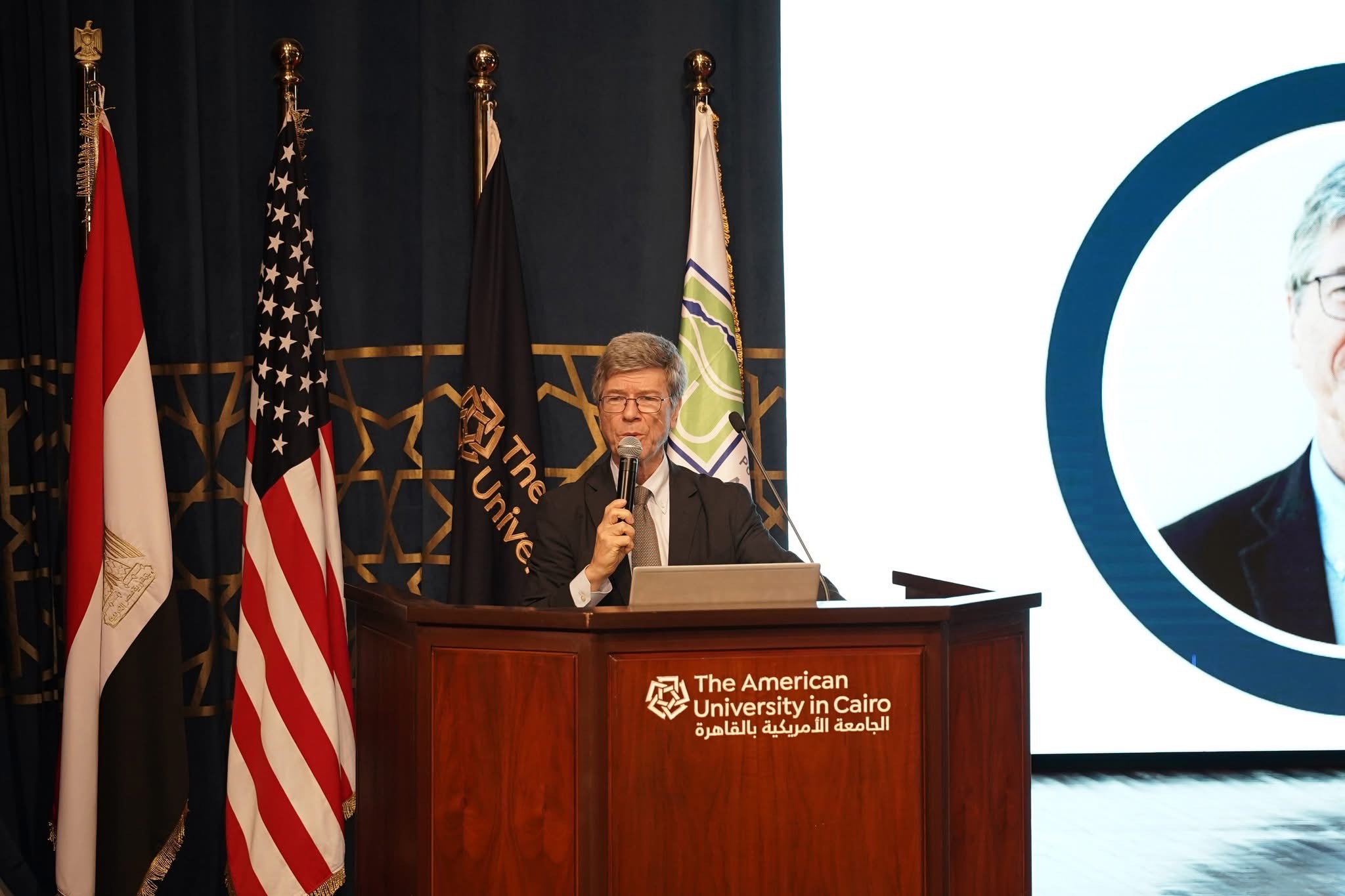Marking a milestone for the advancement of the UN Sustainable Development Goals in Egypt and the region as a whole, the celebration featured a public lecture delivered by President of the UN SDSN Jeffery Sachs titled, “Global and Local Pathways to Achieving the UN Sustainable Development Goals”.
A Milestone for Sustainable Development
The United Nations Sustainable Development Solutions Network was launched in 2012 to advance research on sustainable development and amplify the voices of academic and research institutes. This year, Egypt has officially joined as the 11th member institution in Africa and the third in the Middle East, which makes this a significant leap towards expanding research on sustainable development in the region as a whole. SDSN Egypt was established in partnership between Galala University and The American University in Cairo, represented by the John D. Gerhart Center. This directly aligns with the Center’s efforts to contribute to research on responsible business practices and direct action towards promoting economic development that does not come at the expense of the environment.
In his address, President of the UN SDSN, Jeffery Sachs highlighted Egypt’s potential to propel progress towards regional and global sustainability through its abundant renewable energy resources and strategic geographic location, he affirmed, “Could Egypt run its economy on zero-carbon energy? The answer is without question, yes, very efficiently”. Sachs further emphasized the importance of forging local pathways towards sustainability that bring forward the regional context to ensure a lasting impact. The launch of SDSN Egypt serves as a new step in amplifying the national and regional voices that are informed by research and in-depth knowledge that pushes forward contextually driven sustainable development.
Universities as a Key Player
In his address, Sachs underlined the essential role that educational institutions play in upholding sustainability initiatives. Sustainable development is a long-term commitment, one that should be prepared for by consistent effort and research-driven decision-making. Sachs emphasized the role of universities in preparing the current and future generations to uphold their commitment to the planet. He highlighted the unique capacity of educational institutions to bring together different sources of knowledge for the common good. Universities and research centers like the John D. Gerhart Center embody a practice of collective thinking as they convene researchers, academics,practitioners, and students to tackle complex issues such as the climate crisis and economic inequalities.
Peace is the Solution
Sachs emphasized the importance of collaboration between academic institutions and civil society. However, partnerships cannot be made in times of instability and war, and the key to sustainability is consistency. With consistent and peaceful cooperation between countries, it would be impossible for us to achieve the vision for a future of economic prosperity fostered on the basis of sustainable development and the ethical commitment towards the planet.
Sachs emphasized, “The most sustainable pillar [to sustainable development] is that there is peace and cooperation because this doesn’t get done in war, sustainable development is about building, not destroying”.
The John D. Gerhart Center for Philanthropy, Civic Engagement, and Responsible Business at Onsi Sawiris School of Business has recently celebrated the launch of SDSN Egypt as part of the UN Sustainable Development Solutions Network (UN SDSN).










